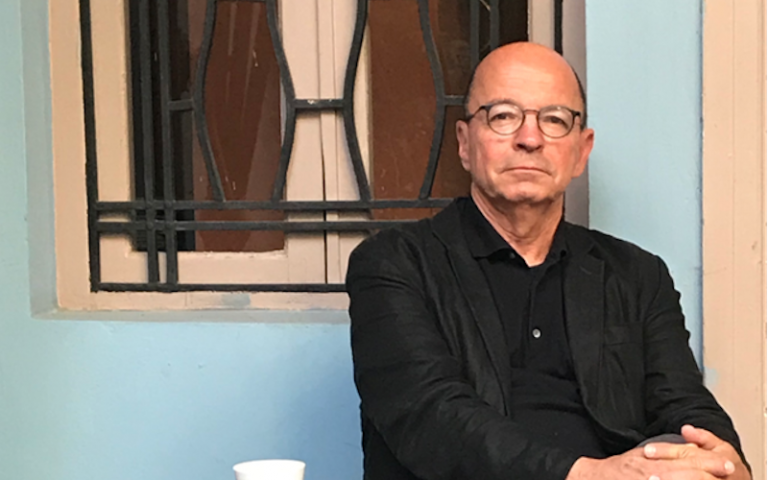Working with WHO to improve sociocultural approaches to tackling COVID-19
15 October 2020
Professor David Napier is working with WHO on a new initiative funded by the Robert Wood Johnson Foundation to improve COVID-19 outcomes in the U.S.

Earlier this year, Professor David Napier (UCL Anthropology) was appointed International Chair of a new committee funded by the Robert Wood Johnson Foundation (RWJF) on the Cultural Contexts of Health and Wellbeing.
The three-year project based at Vanderbilt University received a $600,000 grant from RWJF to develop a new model for healthcare that takes cultural attitudes and practices into consideration to improve health outcomes in the United States. This project extends an effort that began in Europe in 2015 at the World Health Organization Regional Office for Europe.
In recent months, both initiatives have pivoted to focus on improving COVID-19 outcomes by encouraging policymakers to think about and act on social and cultural understandings of health and wellbeing in how they mediate responses to the virus.
“For many of us, unless we’ve contracted the virus, our experience of COVID-19 has been an entirely sociocultural one. We think about it as a medical challenge, but until we have a vaccine, we’re tackling it with social responses: mask-wearing, social distancing and staying at home. Therefore, the way we understand it in its cultural context is not only important, but critical for our personal, political and economic security,” said David.
As International Chair of the committee, David consults with an international expert panel of academics, policy makers, practitioners, community advocates and other stakeholders to identify health and wellbeing challenges that are mediated by social and cultural practices and to translate the panel’s recommendations into action. The panel commissions new research, develops policy briefs and shares their findings with healthcare practitioners.
David’s extensive work studying how cultural understanding can improve health outcomes around the world, particularly in Europe and the U.S., feeds directly into his new role. For example, David’s work as the Global Academic Lead for Cities Changing Diabetes, a programme launched by Novo Nordisk, UCL and the Steno Diabetes Centre in 2014, aims to understand the sociocultural drivers of diabetes through innovative research and to take action by collaborating with local partners and stakeholders.
David also serves as the Innovations Lead for SONAR-Global, a European Commission-funded social science network that organises social science responses to public health emergencies, where he develops and implements health vulnerability assessments for infectious disease outbreaks including COVID-19.
Most recently, David co-wrote a comment piece for the English edition of the international French policy journal, Le Monde diplomatique, with his colleague Professor Edward Fischer (Vanderbilt University) who leads the Cultural Contexts of Health and Wellbeing project for the Robert Wood Johnson Foundation.
The article, entitled “How Uganda Leads on COVID-19: the Culture of Health and Sickness,” was published in July 2020 and discusses how countries might rethink their response strategies to the COVID-19 pandemic. It draws on ground-breaking research that SONAR-Global partners have been doing in Uganda, assessing the vulnerability of communities and resilience to diseases as part of health planning.
David is also Director of the Science, Medicine, and Society Network at UCL where he led, among other initiatives, the 2014 Lancet Commission on Culture and Health.
Further information:
For the latest news about UCL’s international activity, partnerships and opportunities, subscribe to the bimonthly Global Update newsletter.
 Close
Close

